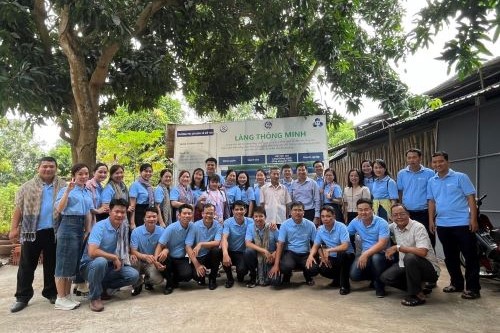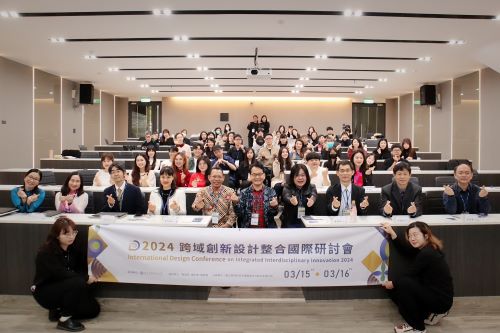![[UEH x World Bank] Academic Seminar "Vietnam Poverty and Equity Assessment - From the Last Mile to the Next Mile"](/images/upload/img_background/ueh-bg-093415-080723.jpg)
[UEH x World Bank] Academic Seminar "Vietnam Poverty and Equity Assessment - From the Last Mile to the Next Mile"
Academic Seminar "Vietnam Poverty and Equity Assessment - From the Last Mile to the Next Mile" is a joint initiative of the University of Economics Ho Chi Minh City (UEH) and the World Bank (WB) in our shared mission of knowledge sharing. With more than 40 attendees, the seminar discussed the latest report by the World Bank on poverty reduction as well as policies against Poverty and Inequality in Vietnam in the future.
The event welcomed Prof. Su Dinh Thanh, UEH President; representatives from Department of Research Management and International Cooperation (RMIC) and the School of Economics, UEH-CELG; as well as representatives from the World Bank, including: Dr. Matthew Wai-Poi, Lead Economist for the Poverty and Equity Global Practice, and Dr. Judy Yang, Senior Economist for Poverty and Equity Global Practice; alongside nearly 40 faculty members, lecturers, staff and students from UEH and other institutions.
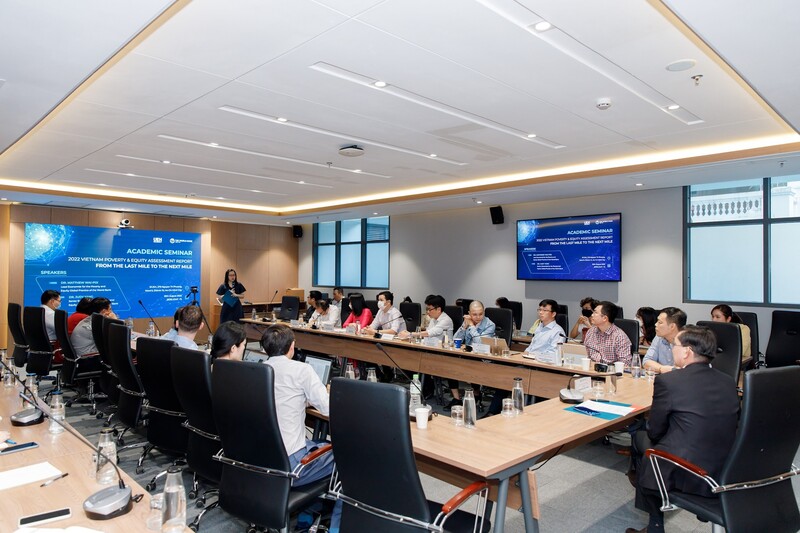
According to the statistics and evaluation done in Vietnam between 2010 and 2020, the "Vietnam Poverty and Equity Assessment - From the Last Mile to the Next Mile" presented evidence of poverty reduction efforts in the country, providing a more comprehensive oversight while proposing agendas to help Vietnam improve its current situation. Accordingly, the poverty and equity agenda is no longer only about raising minimum living standards and tackling chronic poverty, but also about creating new and sustainable economic pathways for a more aspirational population. This is also the goal of The Next Mile, which is to help those who have escaped poverty achieve economic security and a much higher standard of living.
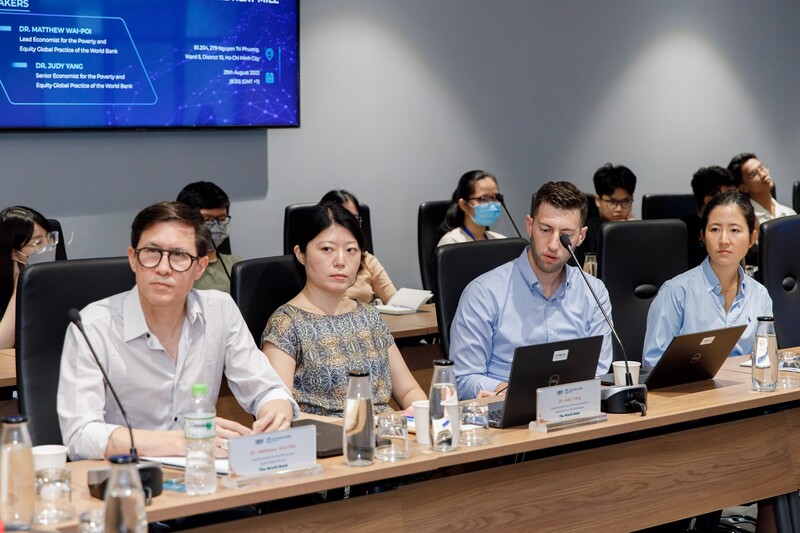
Despite it being a decade of significant progress, the experts went on to warn that the last mile challenges remain in remote regions and other vulnerable groups, including people with disabilities, the ethnic minorities and/or the elderly. The report concluded with policy recommendations within the framework from the Last Mile to the Next Mile, in which, for the Last Mile, target poverty where it still exists by using digital infrastructure and tools to reduce economic distance to remote areas as well as improve education and technology on agriculture. For the Next Mile, some policies for the way forward include ensuring equitable education quality, improving higher-education quality and access, addressing coverage gaps in SP, and investing to modernize social protection and tax administration capacity.
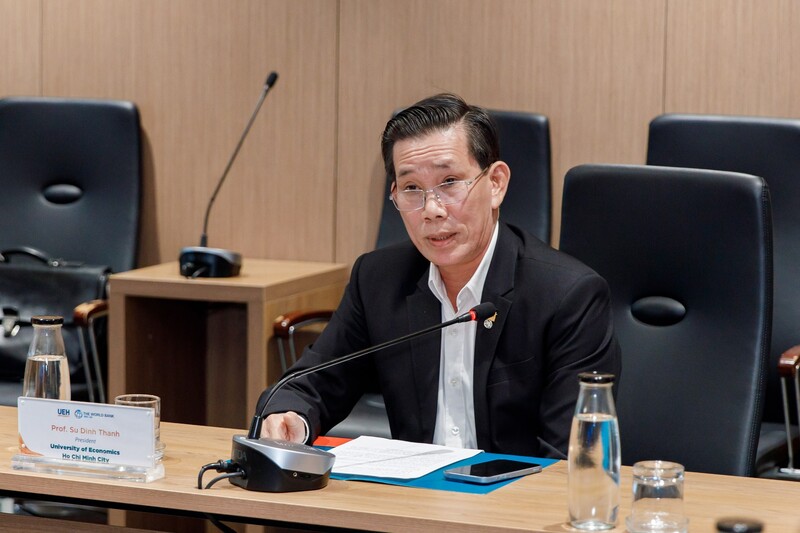
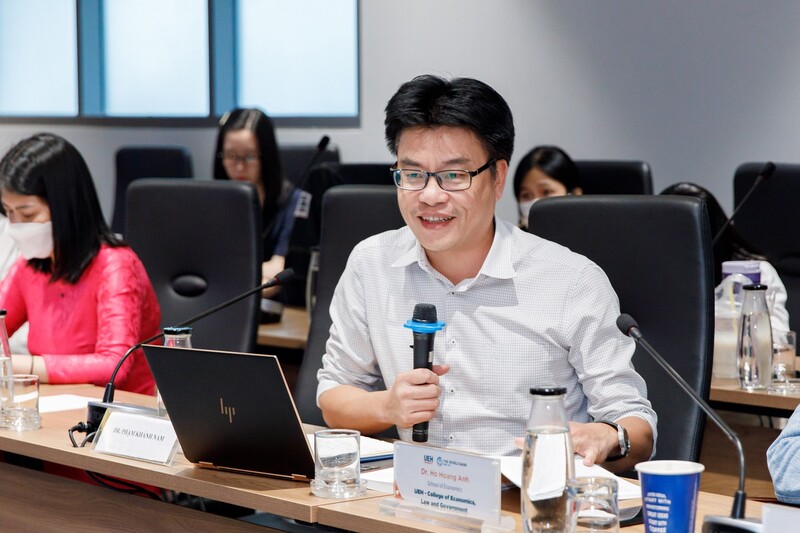
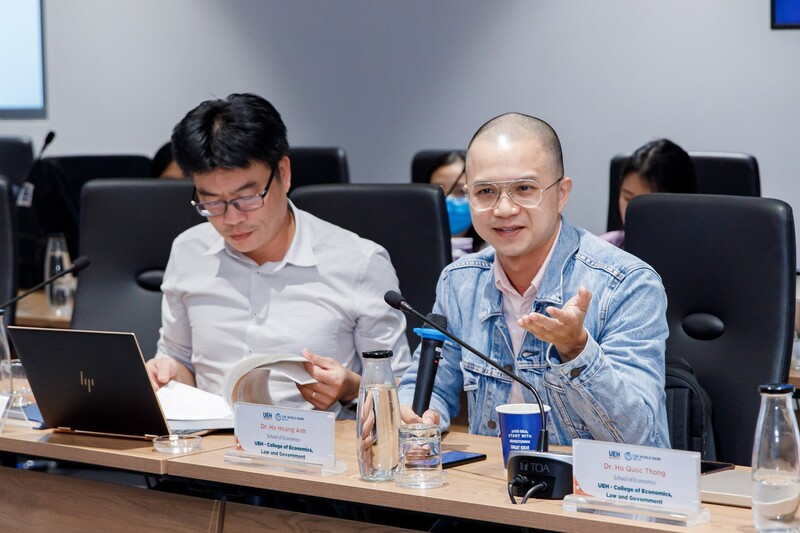
The seminar has attracted the interest and discussion of UEH professors and students. Following the event, experts from the World Bank met with professors from the School of Economics to discuss future opportunities for collaboration, with the expectation that the relationship between the two parties will continue to flourish.
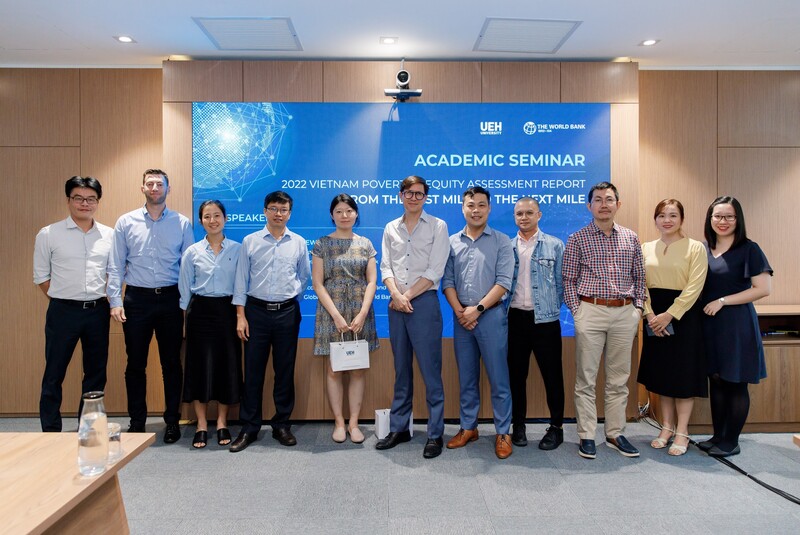
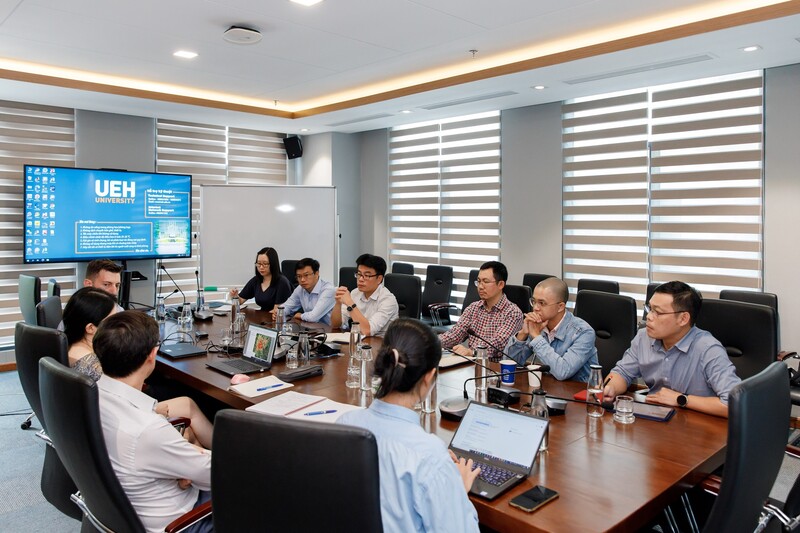
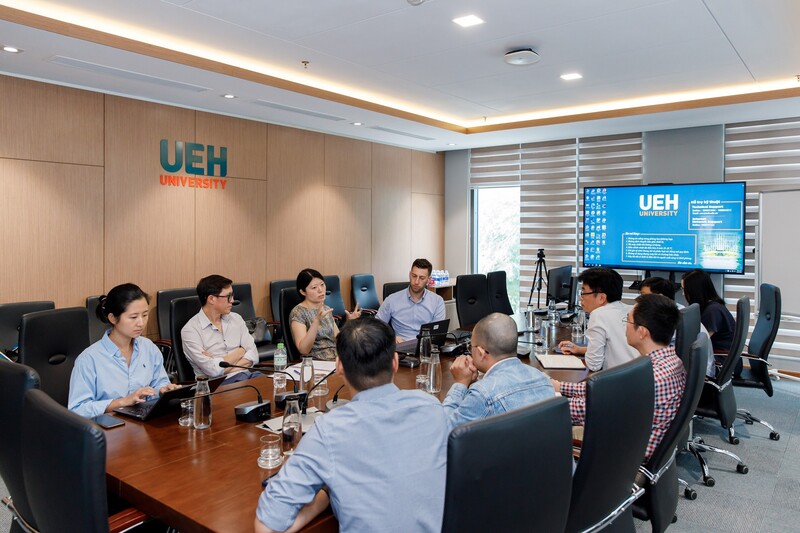
Other photos from the event:
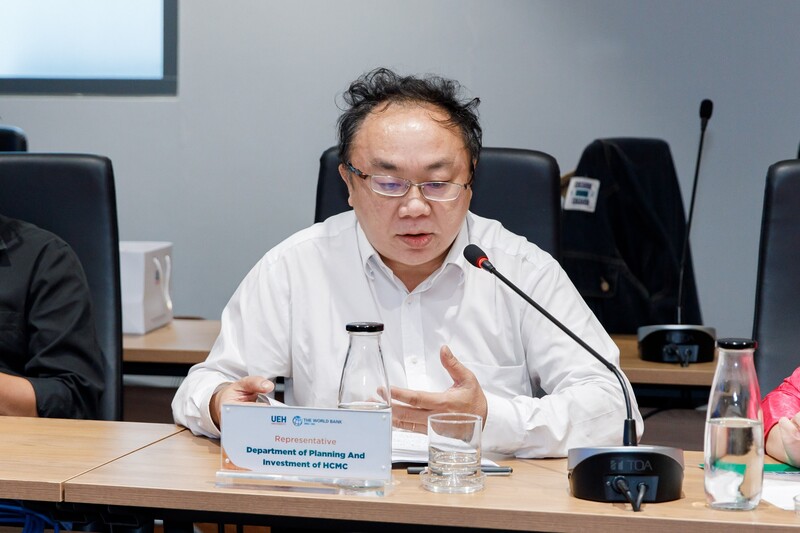
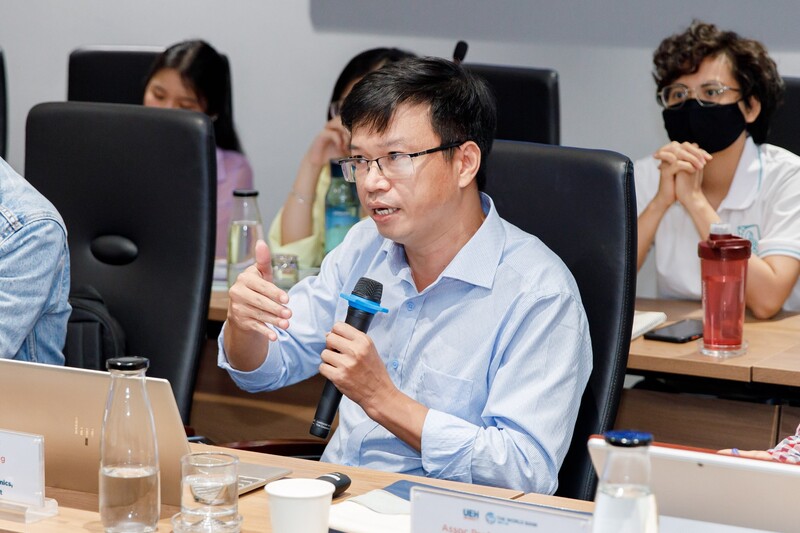
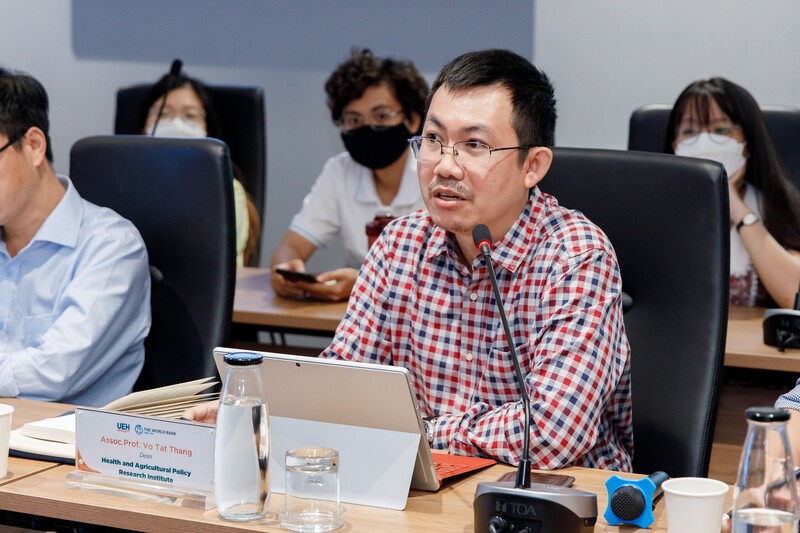
News, photos: RMIC, MarCom




